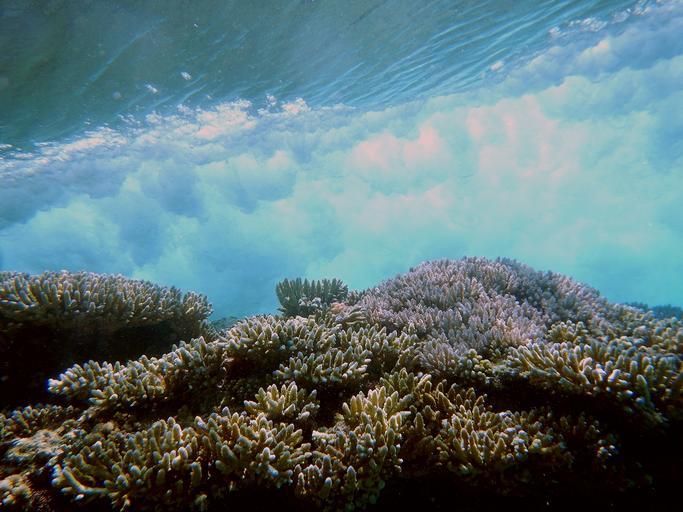MAKE A MEME
View Large Image

| View Original: | Breaking_Wave.jpg (1500x1125) | |||
| Download: | Original | Medium | Small | Thumb |
| Courtesy of: | www.flickr.com | More Like This | ||
| Keywords: usgs science coreal ocean islands hazard waves climate change climatechange environment tropical underwater water outdoor coral Breaking Wave — An underwater photo of a wave breaking over a coral reef on the Kwajalein Atoll in the Republic of the Marshall Islands. This photo shows how the high hydrodynamic roughness of live, healthy corals causes friction that induces breaking of waves over coral reefs, and reduces wave energy at the shoreline that can cause flooding and island overwash. Coral reefs, under pressure from climate change and direct human activity, may have a reduced ability to protect tropical islands against wave attack, erosion and salinization of drinking water resources, which help to sustain life on those islands. A recent paper by researchers from the Dutch independent institute for applied research Deltares and the USGS gives guidance to coastal managers to assess how climate change will affect a coral reef’s ability to mitigate coastal hazards. Photo credit: Curt Storlazzi, USGS. You can learn more about this topic at: on.doi.gov/ClimateReefs Breaking Wave — An underwater photo of a wave breaking over a coral reef on the Kwajalein Atoll in the Republic of the Marshall Islands. This photo shows how the high hydrodynamic roughness of live, healthy corals causes friction that induces breaking of waves over coral reefs, and reduces wave energy at the shoreline that can cause flooding and island overwash. Coral reefs, under pressure from climate change and direct human activity, may have a reduced ability to protect tropical islands against wave attack, erosion and salinization of drinking water resources, which help to sustain life on those islands. A recent paper by researchers from the Dutch independent institute for applied research Deltares and the USGS gives guidance to coastal managers to assess how climate change will affect a coral reef’s ability to mitigate coastal hazards. Photo credit: Curt Storlazzi, USGS. You can learn more about this topic at: on.doi.gov/ClimateReefs | ||||